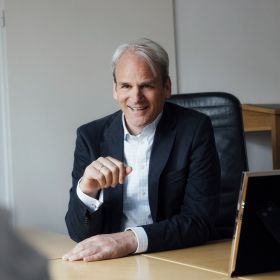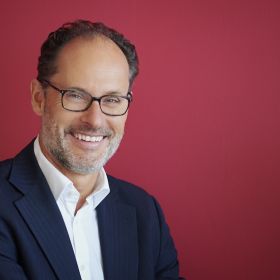Foundations provide support for everything from wildlife conservation to inner city education. So what is their role in a global pandemic? When the COVID-19 crisis hit, philanthropic foundations did what everyone else did: they scrambled to empty their offices and set up their workers from home locations. But once virtual operations were underway, they faced a unique question: What should the foundation mission look like when crisis sweeps the globe? Egon Zehnder gathered two dozen leaders of philanthropic foundations from Europe and the U.S. to discuss the challenges and the major themes they see rising out of the global health crisis.
Urgent COVID-Related Response
Initially, many foundation leaders turned their efforts to the crisis at hand.
“As we started to understand the scope of the crisis in early March, we got in touch with foundation founders and Board members to check the interest in making a contribution to the crisis. We reached out to our network of partners in health, scientific research, and social sectors to understand most recent needs and what can be achieved with additional funding,” said one leader. “And then we created the COVID-19 Foundation in one week.” Projects making protective equipment, modeling contagions and researching vaccines were all beneficiaries, she said.
Another leader spent the early weeks of the shut down formulating ways in which her organization could support government efforts. “We knew the country was going into a big mess when it came to testing. I worked with the government of Foundations Look to Fund the Future By Caspar von Blomberg, Marc Erzberger, Neil Hindle, Simon Page 2 Denmark, since they were busy, occupied by running the country, and I told them that I wanted to build a testing center for the coronavirus.” Working with a national institute run by the government, the foundation started to collect equipment from universities and combined it with the expertise within the foundation. Within three weeks, testing centers were widely available. “We changed the government’s approach to testing strategy. We couldn’t wait for them. Society was closed down and it’s really expensive to remain closed down for a long time. By developing a lot of tests, we ensured that only a small number of people died from COVID.”
For some, the crisis helped accelerate what are traditionally deliberate foundation processes. “We started thinking about new funding measures,” said one leader. An ad hoc committee formed and prepared a presentation for the Board in record time. “This is a new mode of decision making. Traditionally, the Board meets three times per year, now we are asking them to meet, review, and make a decision on this new ad hoc committee in one week. This is a rapid decision making process.”
Protecting Ongoing Work From COVID Overload
But even as the crisis response moved into high gear, many leaders recognized the risk of losing their original focus. Foundation leaders expressed commitment to maintaining support for their core missions and not allowing COVID to distract them.
“What makes me nervous is that lots of foundations are letting go of their normal priorities. For example, we fight child labor. COVID should not be an excuse to let go of that priority and that work. What we’ve built over the last 10 years could be eliminated if we don’t continue to prioritize this issue. Foundations cannot let go of their normal priorities because of COVID,” said one leader. (It’s worth noting that subsequent to our call, some prominent foundation leaders took a different view, that everything else should be subordinated to the COVID response.)
“Deal with what the foundation does. We have topics that don’t get picked up by the government, so the goal is to keep supporting those,” agreed another.
Foundations may find their contributions are even more important now, when other sources of funding may evaporate. “As foundation leader, I believe the most important thing is to establish continuity. This is not the time to reduce funding.
We’re all experiencing shrinking in investment income but we need to increase funding of our crisis programs. We should maintain long-term focus on the sectors that are vulnerable and not covered by public assistance programs,” said one.
But most philanthropic organizations are not so much worried about the immediate needs for their program partners in the field, but for the long-term survival of their causes. Foundation leaders say to keep these important projects funded, foundations will need to be creative.
For others, foundation leaders were able to offer their expertise to organizations having difficulty seeing around the corners of this crisis-impacted world. “We are helping partners with the fact that they can’t foresee their own needs,” said one leader. “We are providing training in scenario planning. It’s a relatively simple tool, but it requires some structured thinking to think about what future will look like, both for opportunities and challenges, and there are going to be a lot of those. Next week we are offering a one-hour online course to everyone in the organization and will be bringing in a trainer in to work through three-hour Zoom call for those who want to take it further.”
Quest For More International Collaboration
Foundation leaders expressed the desire for better collaboration between foundations and other philanthropic institutions as well as cooperation with governments.
International collaboration has been one of the greatest recent challenges, said one CEO. “We received requests to sign public statements stating how much we care. We can do this but will it really make a difference? I don’t know,” he said. “I’m still looking for real opportunities for collaboration rather than signing statements. I am looking for an exchange interlinking how we help communities, but I haven’t found it yet.”
“We should set up an international platform for best practices for foundations to pool our resources together when dealing with a crisis,” another leader suggested. “We have seen public statements on what we should do, but we haven’t followed it up by real action and projects geared toward the civil sector to demonstrate what can be done if we join forces. This is particularly important for foundations that don’t have the structure to work at large scale. And it would give us the chance to collaborate more effectively with the public and the private sectors.”
Foundation leaders in Europe, concerned that also national governments were having difficulty collaborating on COVID response, are eager to try their own crossborder efforts. “The amount of solidarity among European governments was not as strong as we hoped, at least in the beginning. The practical response was also not as fast and determined as we hoped. For example, Italy reached out to its neighboring countries for help, but received almost none. I would like to bring forward the question: As we are foundation leaders, what measures can we take to build bridges across borders, and contribute solutions to this global problem?” said one leader.
One leader claimed that the social sector was entirely excluded from discussions with the government on the structuring of the comprehensive rescue packages. She emphasized that she could have seen a very constructive role of philanthropic organizations in collaborating with governments to mitigate the most severe social consequences of the crisis. “They put the biggest bazookas ever on the table to support companies, but when it comes to state funds for philanthropies, nothing happened.”
Finally, leaders noted, one day the current crisis will pass and there will still be important work for foundations to engage in. “This is not a regular crisis, it’s a watershed moment,” said one. “Decisions are being made around democracy, policy, etc. and I hope foundations can be voices of reason as positions are constructed post-COVID.” For what is expected as a consequence of the crisis – massive unemployment and further increased social exclusion – the foundation sector is bound to have a central role in mitigating these dynamics and to develop common solutions to global problems.








